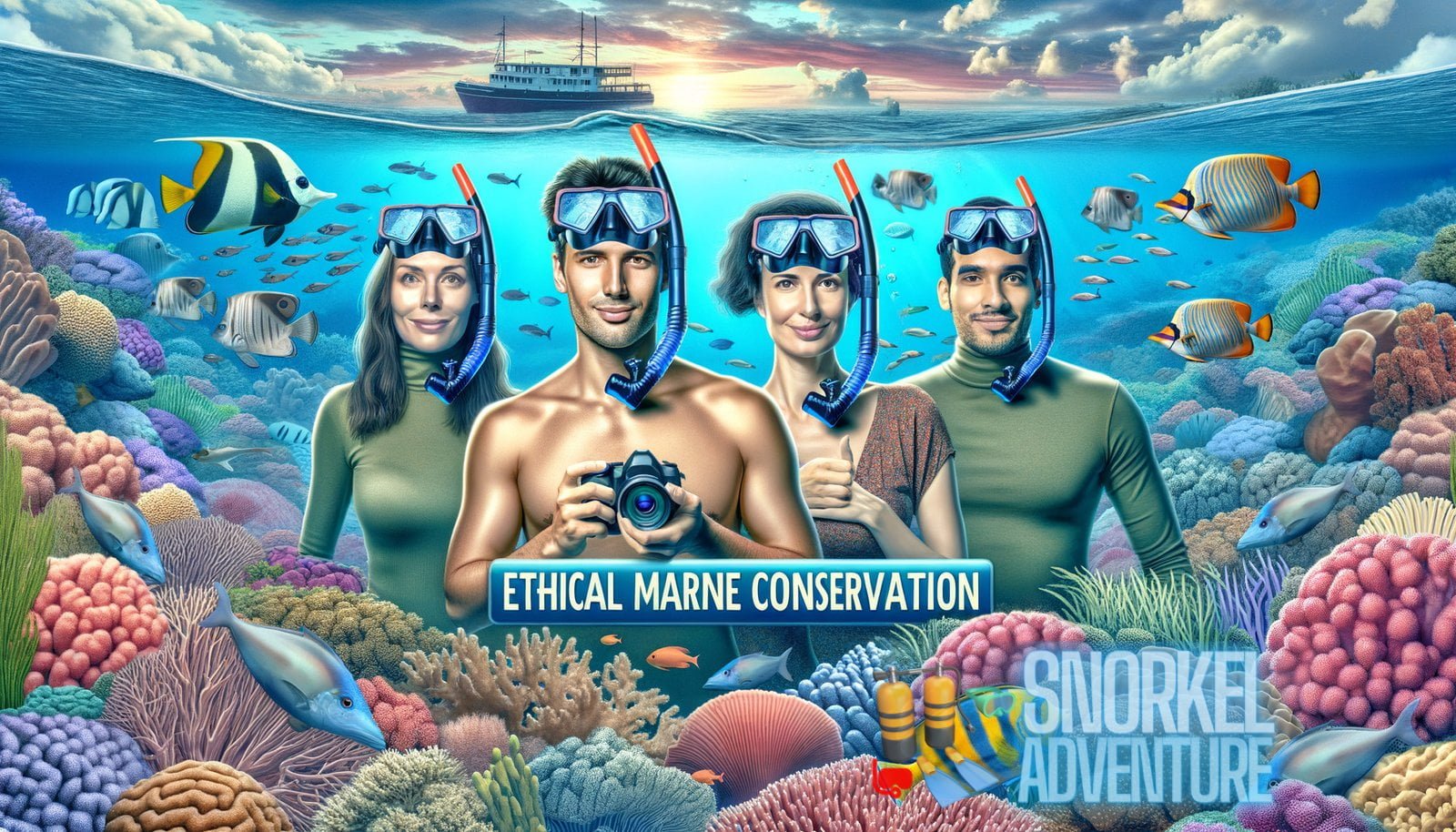Introduction
Snorkeling is a popular recreational activity that allows individuals to explore the underwater world and experience the beauty of marine life up close. However, it’s important to consider the ecological impact of snorkeling and ensure that we practice ethical snorkeling to protect the delicate balance of marine ecosystems. In this article, we will explore the ecological benefits of ethical snorkeling and how sustainable practices can help in preserving marine life.
What is Ethical Snorkeling?
Ethical snorkeling encompasses a set of practices that prioritize the well-being of marine life and minimize the negative impact on the environment. It involves respecting the natural habitats of marine creatures, following rules and regulations, and adopting sustainable practices to ensure the long-term health of ecosystems.
The Ecological Importance of Marine Life
Before diving into the benefits of ethical snorkeling, let’s first understand the ecological importance of marine life. The ocean covers about 71% of the Earth’s surface and is home to a diverse array of plant and animal species. These marine ecosystems provide a range of essential services:
- Oxygen production: Marine plants, such as phytoplankton, produce about 70% of the Earth’s oxygen, making them vital for our survival.
- Climate regulation: The ocean plays a crucial role in regulating global climate patterns by absorbing and storing massive amounts of heat and carbon dioxide.
- Biodiversity support: Coral reefs, seagrass beds, and other marine habitats are biodiversity hotspots, supporting countless species and providing nurseries for marine organisms.
- Economic value: Marine ecosystems contribute to tourism, fishing, and pharmaceutical industries, providing livelihoods and economic benefits to coastal communities.
The Impact of Snorkeling on Marine Life
While snorkeling allows us to appreciate the wonders of the underwater world, it can also have negative impacts on marine life if not practiced responsibly. Some of the potential impacts include:
- Habitat destruction: Uninformed snorkelers may cause damage to sensitive reef ecosystems by accidentally kicking or touching corals.
- Disturbance to marine creatures: Getting too close to marine animals can disrupt their natural behavior and cause stress, which can lead to negative impacts on their life cycles.
- Littering and pollution: Improper disposal of waste, such as sunscreen chemicals or plastic water bottles, can contaminate the water and harm marine life.
- Overfishing: Snorkelers who engage in spearfishing or take marine creatures illegally can contribute to overfishing, depleting populations and disrupting natural ecological balance.
The Ecological Benefits of Ethical Snorkeling
By practicing ethical snorkeling, we can help mitigate these negative impacts and contribute to the conservation of marine life. Let’s explore some of the ecological benefits of ethical snorkeling:
1. Preservation of Coral Reefs
Coral reefs are often referred to as the “rainforests of the sea” due to their incredible biodiversity and ecological importance. However, they are under immense threat from climate change, pollution, and destructive practices. Ethical snorkeling plays a crucial role in preserving coral reefs:
- Snorkelers should avoid touching or standing on corals, as even a small amount of contact can cause irreparable damage.
- Using reef-safe sunscreen reduces the release of harmful chemicals into the water, thus protecting coral reef ecosystems.
- Choosing snorkeling operators who follow sustainable practices, such as mooring buoys instead of dropping anchor, helps prevent damage to coral reefs.
2. Conservation of Endangered Species
Many marine species are endangered or threatened due to human activities. Ethical snorkeling can contribute to their conservation by:
- Respecting protected areas and not disturbing the natural habitats of endangered species, such as sea turtles or cetaceans.
- Participating in citizen science programs that gather data on marine species, such as reef fish or sea turtles, to support ongoing conservation efforts.
- Choosing snorkeling destinations that prioritize marine conservation and actively work towards the protection of endangered species.
3. Marine Stewardship and Sustainable Snorkeling Practices
Marine stewardship refers to the responsible management of marine resources and ecosystems. Sustainable snorkeling practices are an essential aspect of marine stewardship:
- Following local regulations and guidelines for snorkeling activities, including restricted areas or seasonal closures, helps protect vulnerable marine habitats.
- Supporting and promoting businesses that prioritize sustainable practices, such as responsible waste management and eco-friendly snorkeling equipment.
- Participating in educational programs or guided tours that teach snorkelers about the importance of marine conservation and sustainable snorkeling practices.
- Advocating for stronger marine protection policies and regulations to ensure the long-term health of marine ecosystems.
Conclusion
Exploring the underwater world through snorkeling can be a transformative experience, but it’s our responsibility to minimize our ecological impact and protect marine life. By adopting ethical snorkeling practices and embracing sustainable approaches, we can enjoy this recreational activity while contributing to the conservation of our oceans. Let’s commit to being responsible snorkelers and guardians of marine ecosystems.
Internal links:


